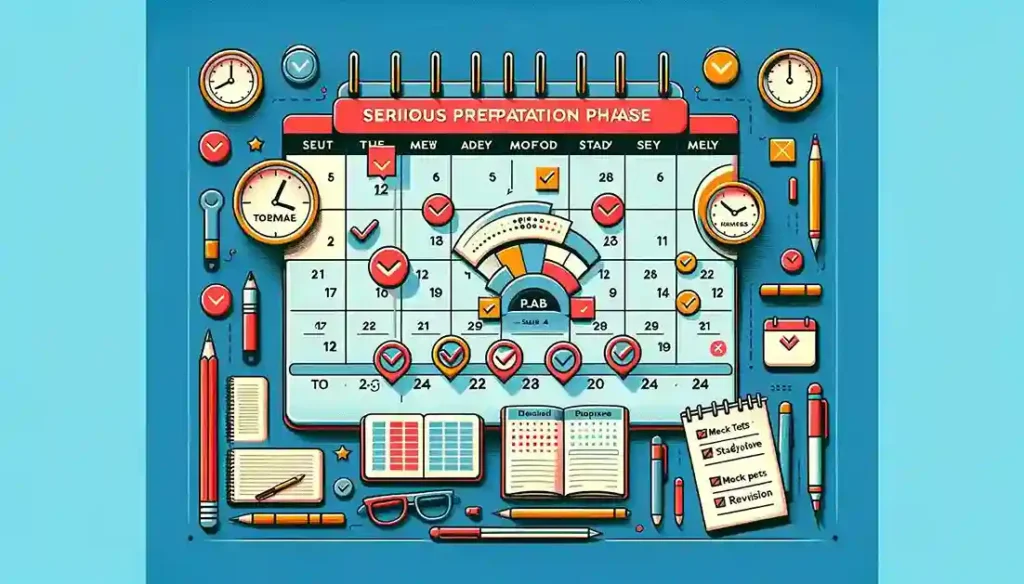The Professional and Linguistic Assessments Board (PLAB) exam is an important step for international medical graduates who want to practice medicine in the United Kingdom.
This blog provides an in-depth look at the PLAB exam, including its structure, preparation tactics, and the journey after passing the exam.
What is PLAB?
PLAB stands for the Professional and Linguistic Assessments Board exam, which is separated into two parts: Part 1 and Part 2.
It evaluates whether international medical graduates are competitive with UK medical graduates, particularly at the foundation year two level.
The goal of the exam is to ensure that candidates achieve the professional and linguistic requirements required to practice medicine in the UK.
Eligibility Criteria for PLAB 2024
Eligibility Requirements: Candidates must have an acceptable medical qualification, pass an English language proficiency test (IELTS or OET), and create a GMC online account.
You need the following to be eligible to take the PLAB 1 exam:
- To be eligible, applicants must have a primary medical degree from a World Directory of Medical Schools university.
- Passed the academic IELTS modules with a minimum overall score of 7.5 and a minimum score of 7.0 in each of the four language skills or passed the Medicine OET modules with a minimum overall grade of B and a minimum grade of B in each of the four language skills (Writing, Speaking, Listening, and Reading).
As long as it is a post-graduate internship, you can take the PLAB 1 without having finished your house job or internship.
If your internship counts toward your graduation (i.e., is pre-graduate), you cannot take PLAB 1 until you have finished it.
The Internship criteria for appearing in PLAB 1 exam is as follows:
- Minimum 12 months
- Absents no more than 20 days
- Must include at least three months in Medicine and three in surgery

When to Appear in the Exam
Ideal Timing for the Exam
The ideal time to take the exam is after finishing the final year of medical school, with serious preparation beginning two to three months before the exam date..
Textbooks, Coachings, and Approach
Study Materials Preparation: Involves using various study materials, including online resources, and textbooks, and joining study groups.
Role of Coaching: Attending preparatory courses and engaging in mock tests are crucial, especially for PLAB Part 2, which is a practical exam.
When to Start Preparing for the Exam
Preparation Timeline
Candidates should start preparing for the PLAB exam after completing their final year of medical school. Focused preparation should begin two to three months before the exam.
What is the IELTS?
The International English Language Testing System is a standardized test that assesses English competency for non-native speakers. IELTS is a prominent English-language test in the world. There are two modules and one supplementary test.
The four parts of the IELTS test
- Listening: 30 minutes (plus 10 minutes’ transfer time)
- Reading: 60 minutes
- Writing: 60 minutes
- Speaking: 11–14 minutes
The total test time is: 2 hours and 45 minutes.[14]
For PLAB you are eligible only when you have:
Passed the academic IELTS modules with a minimum overall score of 7.5 and a minimum score of 7.0 in each of the four language skills or passed the Medicine OET modules with a minimum overall grade of B and a minimum grade of B in each of the four language skills (Writing, Speaking, Listening, and Reading).
- IELTS tests the ability to listen, read, write and speak in English.
- The speaking module is a key component of IELTS. It is conducted in the form of a one-to-one interview with an examiner. The examiner assesses the test taker as they are speaking. The speaking session is also recorded for monitoring and for re-marking in case of an appeal against the score given.
- A variety of accents and writing styles have been presented in test materials in order to minimize linguistic bias. The accents in the listening section are generally 80% British, Australian, New Zealander and 20% others (mostly American).
- IELTS is developed by experts at Cambridge English Language Assessment with input from item writers from around the world. Teams are located in the US, UK, Australia, New Zealand, Canada, and other English-speaking nations.
- Band scores are used for each language sub-skill (Listening, Reading, Writing, and Speaking). They are averaged out to derive the overall band score for each test taker.

Attempt Limits for PLAB
Maximum Attempts
Candidates are allowed a maximum of four attempts to pass the PLAB exam. It’s important to plan and prepare thoroughly for each attempt.
USMLE vs PLAB
Choosing Between Exams: The choice between PLAB and USMLE often depends on the aspirant’s preference for practicing in the UK or the US. Factors like lifestyle, career goals, and exam complexity play a significant role in this decision.
Pathway After Clearing PLAB 1
Next Steps: After passing PLAB Part 1, candidates need to prepare for and pass PLAB Part 2. Successful completion of both parts allows candidates to apply for registration with the GMC.
Which Exam to Focus On?
Prioritizing Exams: Candidates should prioritize exams based on their career goals and the timeline of each exam. Balancing preparation for multiple exams like NEET-PG and PLAB requires strategic planning.
Financial Requirements for PLAB
Budgeting for PLAB: The estimated cost for the entire PLAB journey ranges from 6 to 10 lakhs INR, including exam fees, preparatory courses, and living expenses in the UK.
The PLAB 1 exam application fee is £ 255, while the PLAB 2 exam application fee is £ 934. The entire application procedure is done online. There are other additional expenses (IELTS/OET, Visa Processing, etc.) in addition to the application fee that you must pay.

Extra-Curricular Activities for CV Building
Importance of a Strong CV: Engaging in research, clinical activities, and other extracurriculars can enhance a candidate’s CV, making them more competitive for PLAB and job opportunities in the UK.
Preparations for Language Exam
Language Proficiency: Proficiency in English is crucial for PLAB. Candidates should assess their language skills and prepare for IELTS or OET accordingly, utilizing practice tests and preparatory courses.
Golden Advice for Aspiring Medical Students
Key Advice: Medical students should focus on their studies while keeping an eye on their future goals. Participating in research and clinical activities can be beneficial for PLAB preparation. It’s also important to maintain a balance and not get overwhelmed by the preparation process.
The PLAB timeline
The PLAB, or Professional and Linguistic Assessments Board test, is a critical assessment for international medical graduates aiming to practice medicine in the UK.
It ensures that doctors trained outside the UK, the European Economic Area (EEA), or Switzerland possess the necessary knowledge and skills equivalent to a doctor commencing their second year of Foundation Programme training in the UK.
Who Needs to Take the PLAB Test?
Typically, if you’ve obtained your medical degree from a non-UK, non-EEA, or non-Swiss medical school, you’ll be required to take the PLAB test. This test verifies that your medical training aligns with the standards expected in the UK healthcare system.

Components of the PLAB Test
The PLAB test comprises two distinct parts:
- PLAB Part 1: This is a written exam consisting of 180 multiple-choice questions, each based on a brief medical scenario. You’ll have three hours to complete this part, which is available in various countries, including the UK. You can check the GMC Online portal for locations and dates.
- PLAB Part 2: This part is an Objective Structured Clinical Exam (OSCE) featuring 16 different scenarios, each lasting eight minutes. These scenarios simulate real-life medical situations, such as patient consultations or acute ward settings. PLAB 2 is conducted at the clinical assessment center throughout the year.
Prerequisites for Taking the PLAB
Before you can sit for the PLAB test, you must create a GMC Online account and provide evidence of your medical qualification and English language proficiency. Once your credentials are verified and meet the GMC’s standards, you can book your PLAB Part 1 test.
After Passing PLAB 1 and 2
Upon successful completion of both parts of the PLAB test, you’re eligible to apply for registration with a license to practice medicine in the UK. It’s important to note that your application for registration should be submitted within two years of passing Part 2 of the PLAB test. Once your application is approved, and you are registered, you are qualified to work as a doctor in the UK.
Conclusion
The journey to passing the PLAB exam and practicing medicine in the UK is challenging yet rewarding. With the right preparation, financial planning, and strategic approach, IMGs can successfully navigate this path and achieve their dream of becoming a doctor in the UK.







No Comment! Be the first one.